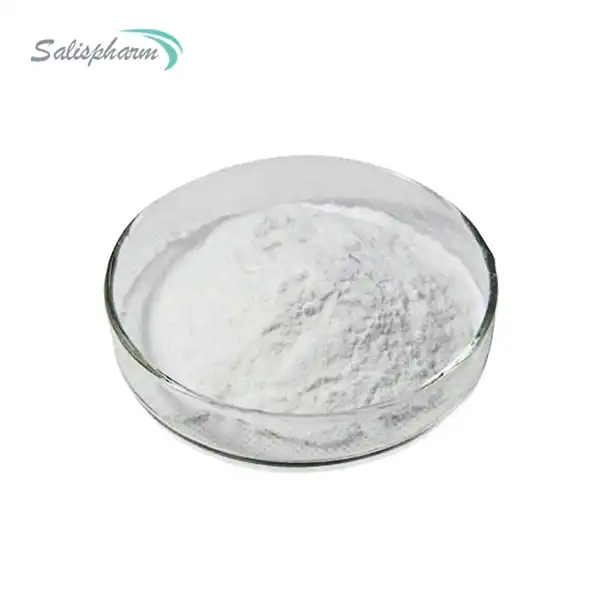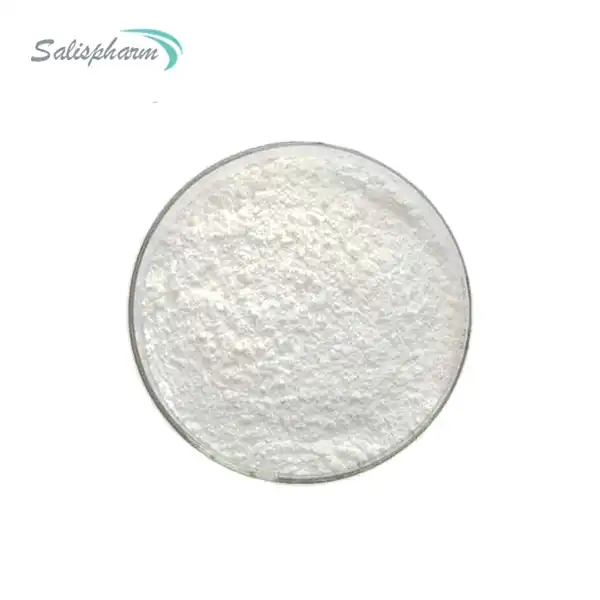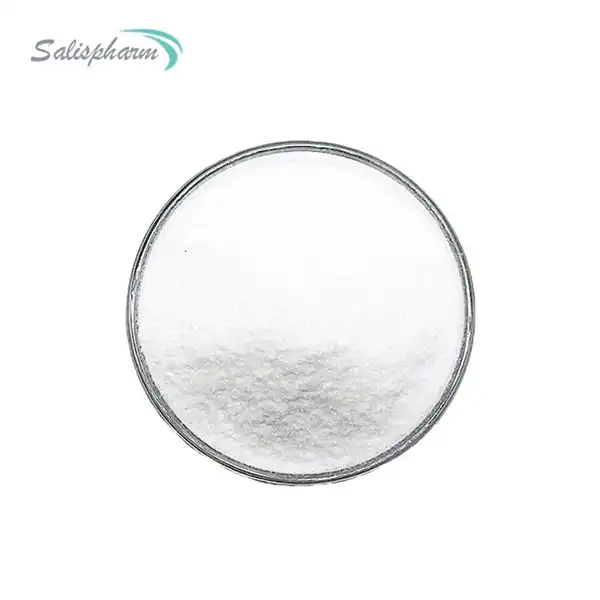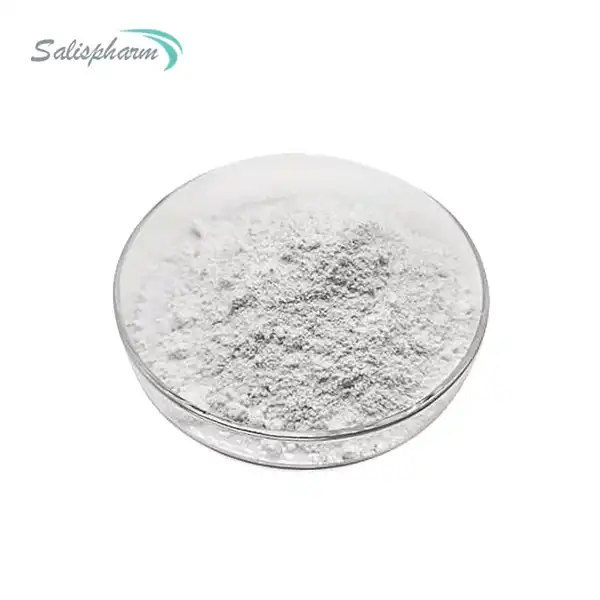Topiramate, a medication primarily used to treat epilepsy and prevent migraines, has garnered attention for its potential effects on weight loss. While not originally designed as a weight loss drug, some studies and anecdotal evidence suggest that topiramate may have fat-burning properties. This blog post will explore the relationship between topiramate powder and fat loss, examining its mechanisms, effectiveness, and potential side effects.
How does topiramate affect appetite and metabolism?
Topiramate's impact on appetite and metabolism is multifaceted, contributing to its potential as a weight loss aid. The drug appears to influence several key factors that play a role in weight management:
Appetite suppression: One of the primary ways topiramate may contribute to weight loss is through appetite reduction. Many users report feeling less hungry and experiencing fewer food cravings while taking the medication. This effect is thought to be related to topiramate's action on neurotransmitters in the brain, particularly its modulation of glutamate and GABA signaling. By altering these neurotransmitter systems, topiramate may help reduce food intake and promote a feeling of fullness.
Metabolic effects: Topiramate has been shown to have some impact on metabolism, although the exact mechanisms are not fully understood. Some studies suggest that the drug may increase energy expenditure and fat oxidation. This means that the body may burn more calories and fat even at rest. Additionally, topiramate powder has been observed to improve insulin sensitivity in some individuals, which can contribute to better glucose metabolism and potentially aid in weight loss.
Taste alteration: An interesting side effect of topiramate is its ability to alter taste perception. Some users report that carbonated beverages taste flat or that certain foods become less appealing. This change in taste preferences may inadvertently lead to reduced calorie intake, especially from sugary drinks and high-calorie foods.
Water loss: Topiramate has mild diuretic properties, which can lead to increased water excretion. While this may result in initial weight loss due to water loss, it's important to note that this effect is temporary and not indicative of true fat loss.
Thermogenesis: Some research suggests that topiramate may have a mild thermogenic effect, meaning it could slightly increase the body's core temperature. This increase in temperature may lead to a small boost in calorie burning, although the extent of this effect is likely minimal.
It's crucial to understand that while these mechanisms contribute to topiramate's potential for weight loss, the drug's effects can vary significantly between individuals. Factors such as dosage, duration of use, diet, exercise habits, and individual physiology all play a role in determining the extent of weight loss one might experience while taking topiramate.
Moreover, it's important to emphasize that topiramate is not approved by the FDA specifically for weight loss when used alone. Its use for this purpose is considered off-label, and it should only be taken under the guidance of a healthcare professional. The weight loss effects of topiramate are generally considered a side benefit when the drug is prescribed for its primary indications, such as epilepsy or migraine prevention.
Can topiramate be combined with other weight loss medications?
The combination of topiramate powder with other weight loss medications is a topic of significant interest in the field of obesity treatment. While topiramate alone has shown some efficacy in promoting weight loss, researchers and clinicians have explored its potential in combination therapies to enhance weight loss outcomes. Here's an in-depth look at the possibilities and considerations:
Phentermine-topiramate combination (Qsymia):
The most well-known and FDA-approved combination therapy involving topiramate is Qsymia, which combines topiramate with phentermine. This combination has been shown to be more effective for weight loss than either medication alone:
Mechanism: Phentermine acts as an appetite suppressant by increasing norepinephrine in the brain, while topiramate is thought to enhance satiety and increase energy expenditure. The combination appears to have synergistic effects on weight loss.
Efficacy: Clinical trials have demonstrated significant weight loss with Qsymia. On average, patients lose about 6.7% of their body weight with the lowest dose and up to 8.9% with the highest dose after one year of treatment.
Dosage: The medication is typically started at a low dose and gradually increased to minimize side effects. The maximum recommended daily dose is 15 mg phentermine and 92 mg topiramate.
Side effects: While the combination can be effective, it also comes with a risk of side effects from both medications. These can include dry mouth, constipation, paresthesia, insomnia, dizziness, and changes in taste.
Contraindications: Qsymia is contraindicated in pregnancy due to the risk of birth defects associated with topiramate. It's also not recommended for patients with glaucoma or hyperthyroidism, among other conditions.
Other potential combinations:
While Qsymia is the only FDA-approved combination therapy involving topiramate powder for weight loss, researchers have explored other potential combinations:
Topiramate and bupropion: This combination is being studied for its potential in weight loss and smoking cessation. Bupropion, an antidepressant and smoking cessation aid, may complement topiramate's effects on appetite and metabolism.
Topiramate and metformin: Some studies have looked at combining topiramate with metformin, particularly in patients with type 2 diabetes or polycystic ovary syndrome (PCOS). This combination may offer benefits in terms of weight loss and improved insulin sensitivity.
Topiramate and GLP-1 receptor agonists: There is growing interest in combining topiramate with newer weight loss medications like liraglutide or semaglutide (GLP-1 receptor agonists). While not yet widely studied, this combination could potentially offer enhanced weight loss effects.
Considerations for combination therapy:
When considering the combination of topiramate with other weight loss medications, several factors must be taken into account:
Enhanced efficacy: Combination therapies often aim to target multiple pathways involved in weight regulation, potentially leading to greater weight loss than single-agent therapies.
Increased risk of side effects: Combining medications can also increase the risk and range of potential side effects. Careful monitoring is essential to manage these risks.
Drug interactions: The potential for drug interactions increases when multiple medications are used. It's crucial to review all medications, including over-the-counter drugs and supplements, with a healthcare provider.
Individualized approach: The choice of whether to use topiramate alone or in combination should be based on individual factors, including the patient's medical history, weight loss goals, and response to previous treatments.
Long-term safety and efficacy: While short-term studies have shown promise for various combinations, long-term data on safety and efficacy are still limited for many potential combinations.
Cost considerations: Combination therapies may be more expensive than single-agent treatments, which could impact accessibility for some patients.
Regulatory approval: With the exception of Qsymia, most combinations involving topiramate are not FDA-approved for weight loss. Use of these combinations would be considered off-label and should be approached with caution.
In conclusion, while topiramate powder can be combined with other weight loss medications, particularly in the FDA-approved formulation of Qsymia, such combinations should only be used under close medical supervision. The potential benefits of enhanced weight loss must be carefully weighed against the increased risk of side effects and other considerations. As research in this area continues, new combination therapies involving topiramate may emerge, offering more options for personalized obesity treatment approaches.
If you are also interested in this product and want to know more product details, or want to know about other related products, please feel free to contact iceyqiang@aliyun.com.
References:
1. Kramer, C. K., & Leitão, C. B. (2017). "Topiramate for weight loss: A systematic review and meta-analysis." Obesity Reviews, 18(5), 594-605.
2. Gadde, K. M., et al. (2011). "Effects of low-dose, controlled-release, phentermine plus topiramate combination on weight and associated comorbidities in overweight and obese adults (CONQUER): a randomised, placebo-controlled, phase 3 trial." The Lancet, 377(9774), 1341-1352.
3. Shin, J. H., & Gadde, K. M. (2013). "Clinical utility of phentermine/topiramate (Qsymia™) combination for the treatment of obesity." Diabetes, Metabolic Syndrome and Obesity: Targets and Therapy, 6, 131-139.
4. Bray, G. A., et al. (2016). "Management of obesity." The Lancet, 387(10031), 1947-1956.
5. Garvey, W. T., et al. (2012). "Two-year sustained weight loss and metabolic benefits with controlled-release phentermine/topiramate in obese and overweight adults (SEQUEL): a randomized, placebo-controlled, phase 3 extension study." The American Journal of Clinical Nutrition, 95(2), 297-308.
6. Verrotti, A., et al. (2011). "Weight loss and seizure control in obese epileptic patients treated with topiramate." Neurological Sciences, 32(1), 169-170.
7. Wilding, J., et al. (2004). "A randomized double-blind placebo-controlled study of the long-term efficacy and safety of topiramate in the treatment of obese subjects." International Journal of Obesity, 28(11), 1399-1410.
8. Appolinario, J. C., et al. (2002). "A randomized, double-blind, placebo-controlled study of sibutramine in the treatment of binge-eating disorder." Archives of General Psychiatry, 59(8), 713-718.
9. Shi, Q., et al. (2020). "Effects of topiramate on weight loss in patients with type 2 diabetes mellitus: A systematic review and meta-analysis." Nutrition, Metabolism and Cardiovascular Diseases, 30(6), 928-937.
10. Srivastava, G., & Apovian, C. (2018). "Future Pharmacotherapy for Obesity: New Anti-obesity Drugs on the Horizon." Current Obesity Reports, 7(2), 147-161.









